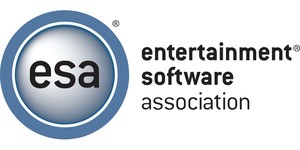IGDA prods members to take action on loot boxes
November 30, 2018 | 11:26
Companies: #international-game-developers-association #us-federal-trade-commission

The International Game Developers Association (IGDA) has called for its members to commit to protecting children from the potential harmful effects of 'loot box' mechanics, on the tail of an announcement from the US Federal Trade Commission (FTC) that it is to formally investigate the matter.
Part of the ever-increasing microtransaction monetisation system, so-called 'loot boxes' have been likened to gambling: Players are able to trade real-world cash for the boxes which contain a reward selected at random from a potential prize pool, with the most sought-after rewards being the least likely to appear. In short, they're digital one-arm bandits offering players a leg-up over the competition in exchange for their credit card details, but the UK Gambling Commission argues that they're not actually gambling unless there's a mechanism for turning the digital prizes back into cash at the other end.
While the Gambling Commission doesn't appear willing to take action on the matter, its equivalents in other countries are not so hesitant: Following considerable backlash against the mechanism, which has seen the feature pulled from games and Apple demand that the odds of winning particular prizes are clearly displayed, countries have begun investigations and in some cases even outright banned loot boxes from games over concerns that they could be a soft entry point to get young children addicted to gambling.
Now, the International Game Developers Association (IGDA) is calling upon its members to take action - before their hands are forced by governmental interference. 'Random loot drops are a well-established game mechanic, and a way to vary rewards and keep players interested and engaged. But when a player makes a real-money purchase of an unknown item-a loot box-we run the risk of triggering gambling laws,' explains Jen MacLean in a call to action published to IGDA members. 'Those regulations are not always clear, and many people have noted that loot boxes are simply digital versions of collectible card games, but we cannot ignore the fact that video games face increased scrutiny, concern, and regulation because of their immersive nature.
'We have a blueprint for taking action as a community, and industry, in how we established clear, easy-to-understand game ratings and content descriptions so that consumers, and especially parents, understand what’s in the games they or their children play. As an industry and community, we should take the following steps immediately: Affirm an industry commitment to not market loot boxes to children; clearly disclose the odds of different rewards when purchasing loot boxes (as many games already do to comply with Chinese law); launch a coordinated education campaign that boosts awareness of the parental controls that are available to appropriately limit how players engage with games.'
The IGDA's call to action appears to have been the result of increasing pressure on game developers and publishers brought to a head by the announcement by the US Federal Trade Commission (FTC) that it is to open an investigation into loot box mechanics in gaming. 'By not taking significant action as an industry and global game developer community to self-regulate how loot boxes are used, we run the very real risk that governments around the world will take that action for us, and perhaps create significantly restrictive laws that could impact any random reward elements in games,' MacLean admits. 'I offer my strongest advice to game developers and interactive entertainment businesses on this matter: addressing how loot boxes are used is both the right thing, and the smart thing, for the global game development industry to do.'

MSI MPG Velox 100R Chassis Review
October 14 2021 | 15:04








Want to comment? Please log in.